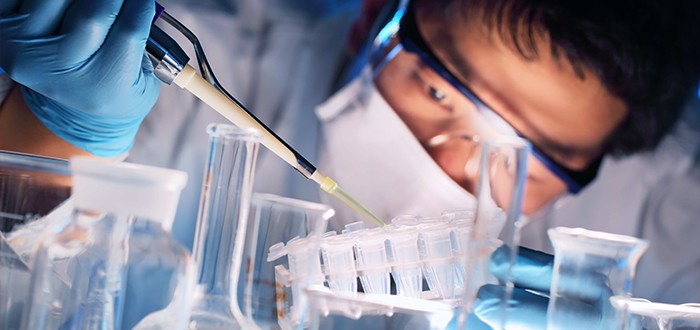Results from a Phase 1b clinical trial of a new mesothelioma immunotherapy drug have been very encouraging. So now Aduro Biotech, Inc., the maker of CRS-207, is asking to skip Phase 2 and go straight to Phase 3 testing.
The company says it hopes to leapfrog Phase 2 in order to expedite CRS-207’s journey through the new-drug approval process overseen by the U.S. Food and Drug Administration (FDA).
If the FDA agrees to let Aduro Biotech jump to Phase 3, it could mean CRS-207 would become available to mesothelioma patients across the U.S. far sooner than expected.
Up to this point, CRS-207 has only been available to fewer than 40 mesothelioma patients. Those who have access to it are the ones enrolled in Aduro Biotech’s Phase 1b clinical trial.
Engineered Molecular Therapy for Mesothelioma
CRS-207 is an engineered molecular therapy. Aduro Biotech spun it off from a live-attenuated, double-deleted Listeria monocytogene the company developed a while ago.
Listeria is normally capable of making you violently sick or even killing you. But not to worry. Aduro Biotech rewired its Listeria monocytogene to prevent it from doing either of those bad deeds.
It’s deadly only to mesothelioma cells. CRS-207 is basically a hunter of the protein mesothelin, which is produced in abundance by mesothelioma cells.
CRS-207 picks up the scent of mesothelin and then swarms the protein. The mesothelin being swarmed happens to be an attached part of the exterior protective shell that surrounds the functioning mesothelioma cell.
Mesothelin has protrusions that CRS-207 molecules can latch onto. Once attached, the CRS-207 molecules cause the mesothelioma cell to suffer a T cell-mediated adaptive immune response.
It’s as if the proverbial monkey wrench had been thrown into the mesothelioma cell’s internal machinery. The consequences are bad for the mesothelioma cell.
Mesothelioma Treatment Regimen Described
Aduro Biotech started its Phase 1 clinical trial three years ago. The company enrolled 32 mesothelioma patients to participate in the “b” part of the trial.
Each enrollee was given an initial dose of CRS-207, followed by another dose two weeks later. Then, two weeks after that, they started receiving cisplatin and pemetrexed chemotherapy.
Each mesothelioma patient received one cycle of the chemotherapy every 21 days. The most they could receive were six cycles over four months.
Whenever the chemotherapy stopped, the company’s researchers waited three weeks. At that point, they gave each patient a CRS-207 booster shot.
Booster shots were repeated at least one time after that. More were given if the mesothelioma patients looked like they were being helped by them.
Aduro Biotech’s researchers followed up with the mesothelioma patients every eight weeks after the first booster shot. Follow up included imaging studies.
One thing the mesothelioma patients had in common was that none had the sarcomatoid subtype of mesothelioma. They all had either the epithelioid subtype or biphasic subtype of mesothelioma.
The patients also had mesothelioma that could no longer be treated with surgery. Indeed, they could only get into the study if chemotherapy was their only remaining option and they hadn’t already tried radiation.
Mesothelioma Controlled Well by CRS-207
So here’s what the study found. CRS-207 plus cisplatin-pemetrexed chemotherapy achieved disease control in almost all of the patients — 94 percent of them to be exact.
Sixty percent of the mesothelioma patients experienced at least a partial response to the therapy. Meanwhile, 34 percent were made disease-stable.
Company officials described this data as being “compelling.” One official said, “We expect this approach may accelerate our ability to offer patients with mesothelioma an attractive therapeutic alternative.”
Said another, “We believe this platform offers significant promise in generating potent innate and tumor-specific adaptive immune responses.”


